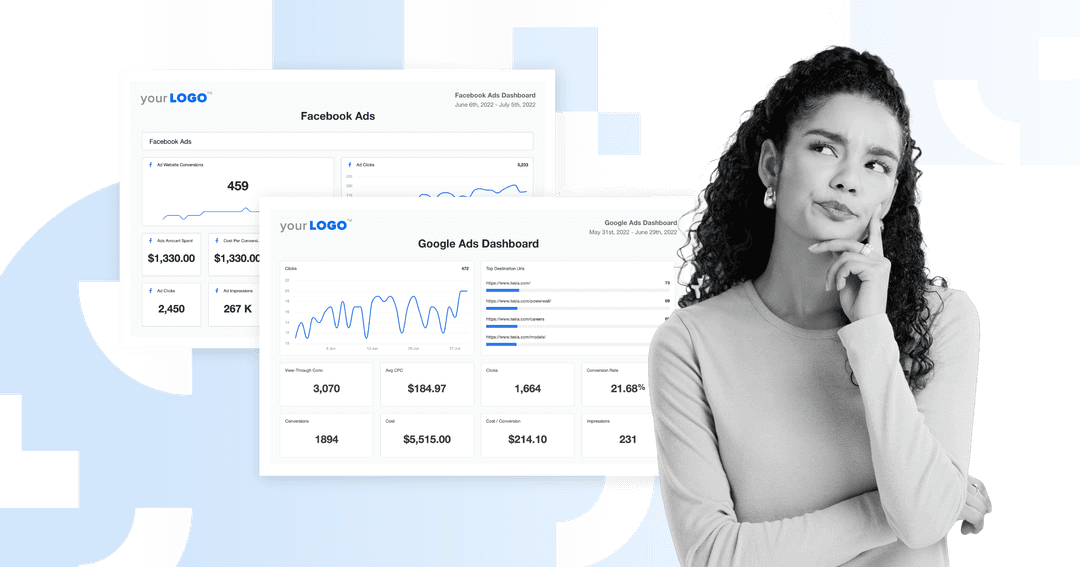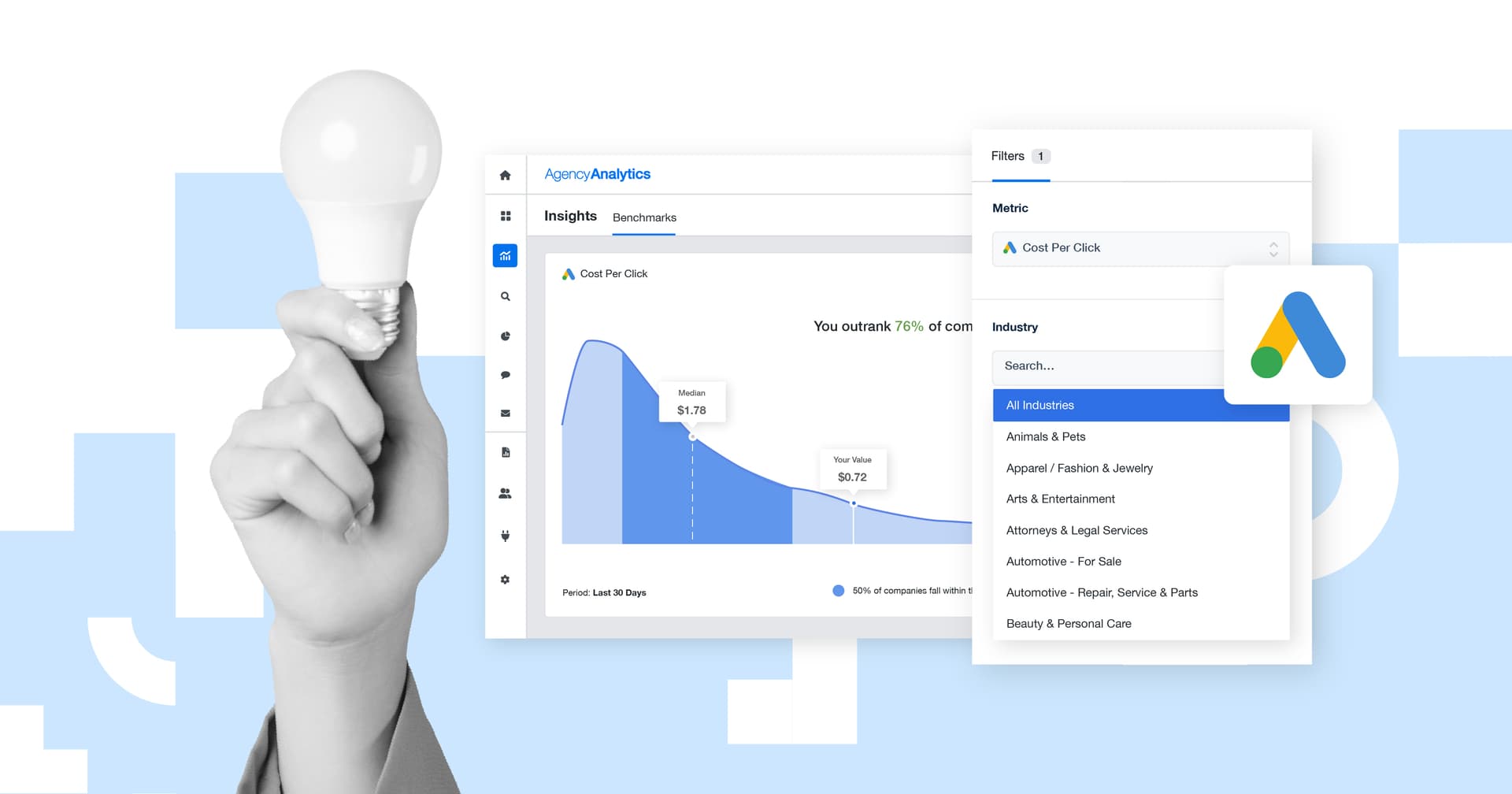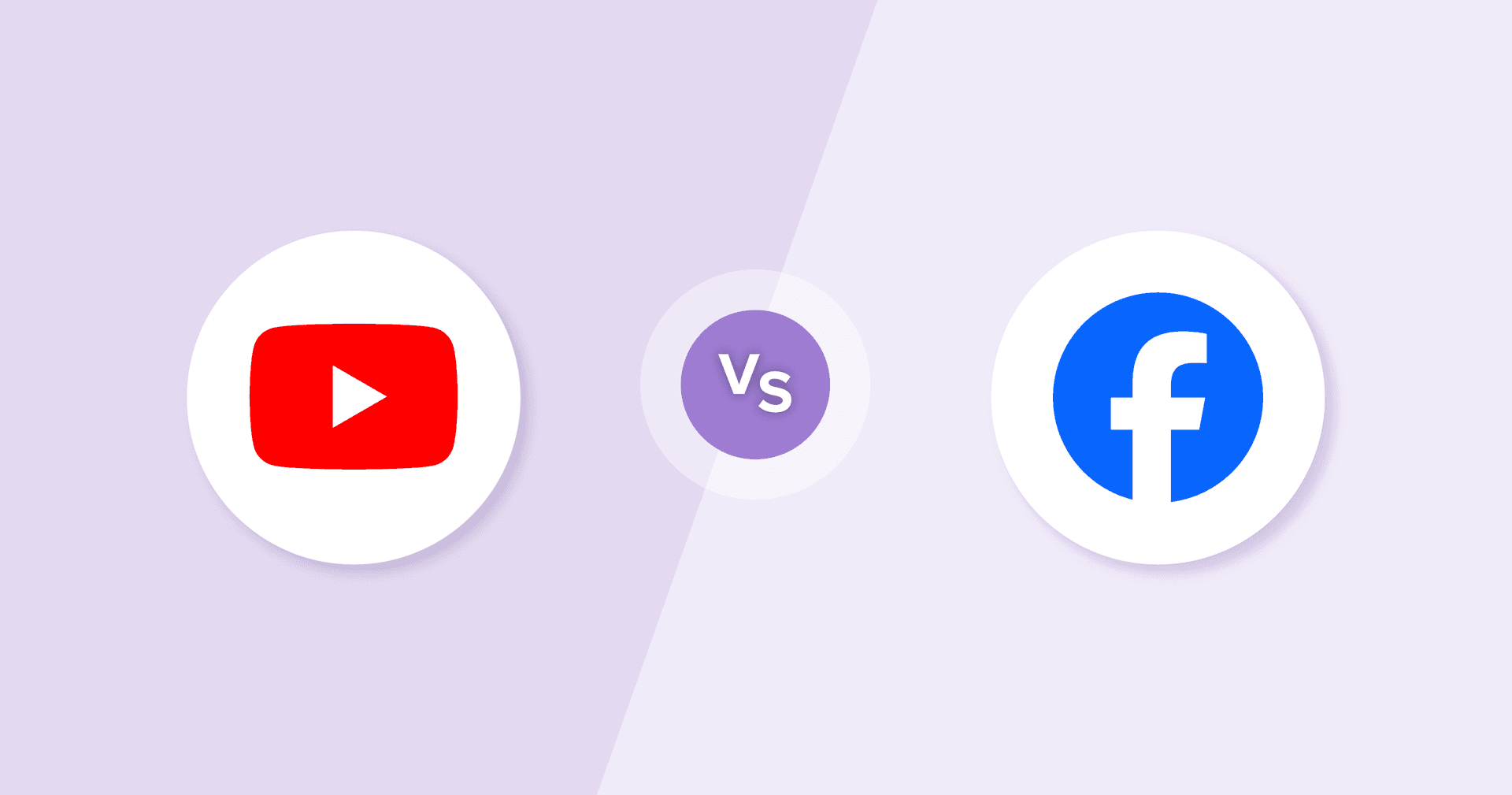Table of Contents
Table of Contents
- What Is Google Ads?
- What Is Facebook Ads?
- Facebook Ads vs. Google Ads: A Comparison
- 5 Key Differences Between Facebook Ads vs Google Ads
- Which is Better?
- Facebook Ads vs Google Ads: When To Use Each
- How To Use Google Ads and Facebook Ads Together
- Tracking PPC Results
- The Takeaway on Google Ads vs. Facebook Ads
7,000+ agencies have ditched manual reports. You can too.
Free 14-Day TrialQUICK SUMMARY:
Google Ads and Facebook Ads, both pay-per-click platforms, are key pillars of PPC advertising. Agencies often use both to maximize reach, but choosing the right one depends on budget and ROI goals. This article explores their differences, featuring insights from our network of agency leaders along with real-world examples of their most successful ad campaigns.
As your agency is well aware, Google Ads (formerly known as AdWords for those who have been in Digital Marketing for a VERY long time) and Facebook Ads are the two powerhouses of PPC advertising. Both can be significant drivers for your client’s businesses, and many agencies use both in congruence to maximize their reach.
Since time and money are limited, where do you start to get the most bang for your buck?
While the platforms share many similarities, their key differences will determine which is the better fit for your client campaigns.
Whether you're a seasoned pro or just getting started, this guide breaks down the pros and cons of Google Ads vs. Facebook Ads, featuring real-world success stories and expert insights from agency leaders.
This article focuses primarily on the differences between paid search vs. paid social to help you decide which option might be best suited for a specific client.
What Is Google Ads?
Google Ads is a paid advertising platform developed by Google, where advertisers bid to display brief advertisements, service offerings, product listings, or videos to web users. The platform helps you place ads in the results of search engines (like Google Search) and non-search websites, mobile apps, and videos.
Data tracking is an absolute must to monitor your client’s progress. View those metrics in Google Analytics directly or use a client reporting tool like AgencyAnalytics for a more streamlined, consolidated overview.
Google’s Performance Max campaigns unify Search, Display, YouTube, and Maps into a single AI-driven ad experience. This automation enables advertisers to reach audiences across more than a million websites and Google properties using text-based and visual ads optimized by machine learning.
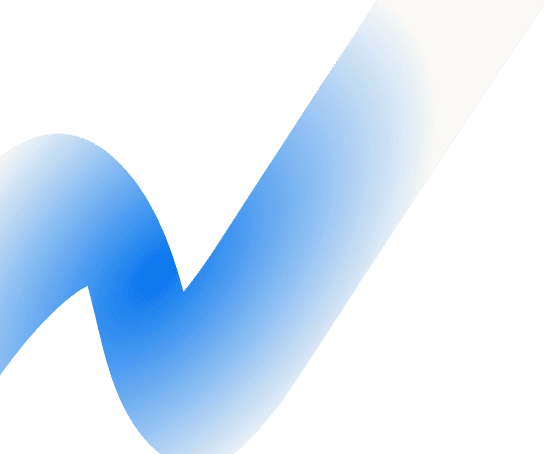
Pros of Google Ads
Google Ads helps businesses reach users actively searching for their products or services. Multiple ad formats and advanced targeting make it a powerful tool for driving high-intent traffic.
Here are some of the biggest advantages of using Google Ads:
High Intent Audience: Users actively searching for solutions are more likely to convert.
Extensive Reach: Google processes over 5.6 billion daily searches, providing access to a massive audience.
Multiple Ad Formats: Search, Display, YouTube, Shopping, and Performance Max campaigns offer flexibility.
Advanced Targeting: Keyword targeting ensures ads are shown to users with purchase intent
Strong ROI for Certain Industries: Particularly effective for service-based and high-ticket industries like legal and healthcare.
Fast Results: Drives immediate traffic, unlike SEO, which takes time to build.
Better Conversion Tracking: Integration with Google Analytics allows for detailed performance insights.
Works Well for Retargeting: Display and search remarketing campaigns help re-engage previous visitors.
Google ads work best when many different campaign types are used in unison to cover all aspects of the purchase funnel, from awareness via YouTube to Consideration via Shopping / Search and Customer Loyalty via Display and Search Remarketing.
Josh Sexton, Digital Performance Director, Sprocket Digital
Cons of Google Ads
While Google Ads offers unmatched reach and intent-based targeting, it also comes with challenges like higher costs and complexity. Before committing, consider these potential drawbacks:
Higher Cost per Click (CPC): Competitive industries (e.g., legal, finance) have significantly higher CPCs.
Complex Setup & Management: Requires continuous optimization, bid adjustments, and A/B testing.
Steep Learning Curve: More technical knowledge is needed compared to Facebook Ads.
Limited Visual Appeal: Search ads are primarily text-based, limiting creative potential.
Click Fraud & Bot Traffic: Some industries experience invalid clicks that don’t lead to conversions.
Requires Strong Keyword Strategy: Poor keyword selection can lead to wasted ad spend.
Examples of Successful Google Ads
Now, let’s take a peek at what a successful Google Ads campaign looks like!
The Idea Center, a full-service advertising and digital marketing agency based in Richmond, Virginia, runs Google Ads campaigns for a large eye care group. Because the business offers so many different procedures to a wide range of audiences, their ads vary significantly. One, in particular, was extremely successful:
This campaign earned 372,000 impressions and 22,820 clicks. The conversion rate for these ads (a contact form submission or phone call) was 15.07%, which is an extremely impressive conversion rate!
Barry Martin, President & Creative Director, The Idea Center

What Is Facebook Ads?
Now, let’s talk about Facebook Ads. Facebook Ads is Facebook’s targeted advertising platform. Ads appear in Facebook’s Feed, Facebook Messenger, and non-Facebook apps and websites within the Meta ecosystem.
Ads come in various formats, including single images, videos, slideshows, and more, and can be targeted to extremely specific audiences. Facebook Ads allow advertisers to target users based on demographics, interests, and behaviors across the Meta suite of products. It facilitates the ad creation process and offers advanced audience targeting to generate brand awareness and drive sales.
Pros of Facebook Ads
Here’s why many agencies prioritize Facebook Ads in their strategy:
Advanced Audience Targeting: Target users based on interests, behaviors, demographics, and custom audiences.
Lower Cost per Click (CPC): Typically more affordable than Google Ads
Highly Visual Format: Image, video, carousel, and story ads drive engagement and brand awareness.
Great for Brand Awareness: Ideal for new products or services not actively searched for.
Strong Retargeting Capabilities: Facebook Pixel helps retarget users who engaged with previous ads.
Scalability: Reaches large audiences quickly and efficiently.
Straightforward Set Up: Ad creation is more intuitive and requires less technical expertise
Works Well for Impulse Purchases: Social scrolling behavior leads to spontaneous conversions.
Cons of Facebook Ads
Despite its strong targeting capabilities and cost-effectiveness, Facebook Ads has limitations, especially when it comes to purchase intent and recent privacy restrictions. Here are some challenges to keep in mind:
Lower Buyer Intent: Users on Facebook aren’t necessarily looking to buy, making conversions harder.
Privacy & Tracking Challenges: iOS updates and cookie restrictions make tracking conversions more difficult.
Ad Fatigue: Users may ignore ads if shown too frequently, requiring fresh creatives.
Requires Strong Creative Assets: Success depends on high-quality visuals and compelling ad copy.
Algorithm Dependent: Performance fluctuates based on Facebook’s algorithm changes.
Limited to the Meta Ecosystem: Unlike Google Ads, Facebook Ads only appear on Meta-owned properties.
Agency Note: Privacy-first tracking continues to evolve. Google Consent Mode v2 and Meta’s Aggregated Event Measurement ensure ad delivery remains compliant while still providing actionable insights. Agencies must now adapt by relying more on modeled conversions, UTM tracking, and GA4 event data to maintain measurement accuracy.
Examples of Successful Facebook Ads
Now, let’s explore a couple of successful Facebook Ad campaigns from agency leaders who leveraged strategy and creativity to drive real results.
Squidgy: Precise Targeting Delivers Higher ROAS With Less Spend
Squidgy, a Newcastle-based digital marketing agency specializing in SEO, PPC, and Paid Social, works with a popular North East tourist attraction. Its campaign goal was to remarket to non-converting website visitors and remind them why they should revisit.
With ever-evolving privacy regulations and tracking limitations, improving on past success was no small feat. However, Squidgy’s team took a strategic approach, leveraging precise targeting and standout creative assets to drive conversions efficiently.
In terms of differentiating factors that made this campaign unique, the targeting was extremely specific. This, coupled with outstanding creatives, set us up for great success. As a result, we managed to increase ROAS by 9% whilst spending less than the previous year. This is especially impressive as the previous year had already been extremely successful, so improving on these results despite the implications of Google Consent Mode 2 and cookie compliance is a huge win in our books!
Sam Yielder, Senior Paid Media Manager, Squidgy
This campaign proves that precision targeting and creative excellence drive measurable growth even in a challenging environment.
Facebook Ads vs. Google Ads: A Comparison
You’ve certainly seen both types of ads when you scroll online. But how do they actually work?
Both are advertising platforms that operate on a pay-per-click (PPC) basis. When you create an ad on either platform, you enter an auction in which you place a bid for how much you want to pay for ad space. Then, you’ll be charged a certain amount (more on that later) every time someone clicks one of your client’s ads.
Google Ads
Traditionally, Google Ads is paid search. Paid search means that you’re paying to have your client’s listing featured on a search engine result page (SERP). Here’s an example of a paid Google search ad:
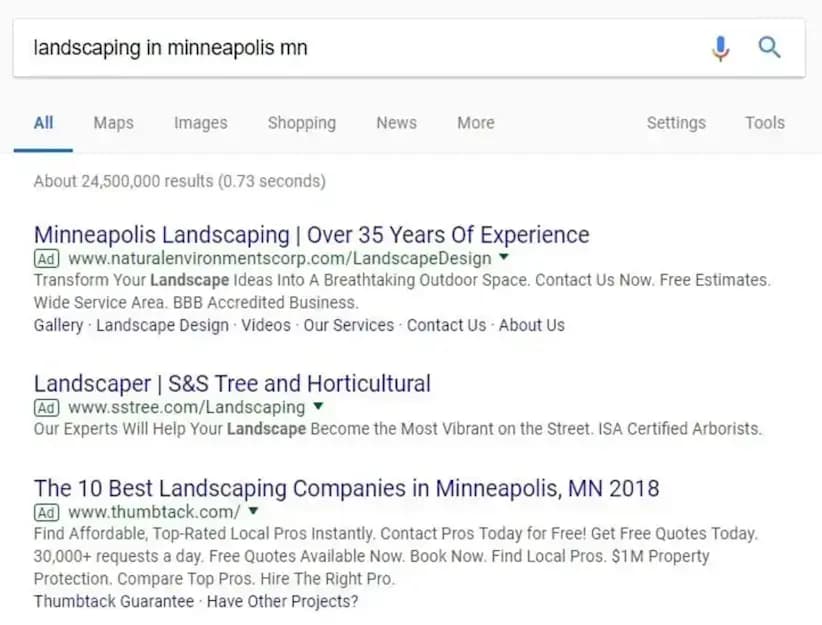
Google Ads appear in Google search results in a format similar to organic search results, based on keyword searches and basic audience targeting options. With paid search, your client’s ad is placed based on target keywords instead of targeting a specific audience interest. That said, you can (and should) adjust paid search campaign settings to target users based on location and other factors.
However, Google Ads offers more than paid search—you can advertise on:
Google Search
YouTube Ads
Google Display Network
Google Maps
Read more on how to optimize your Google Ads.
Agency Tip: Use the automatic PPC markup feature on client reports to visually show Google Ads ad spend, how your client’s goals are progressing, and include your markup within the cost.
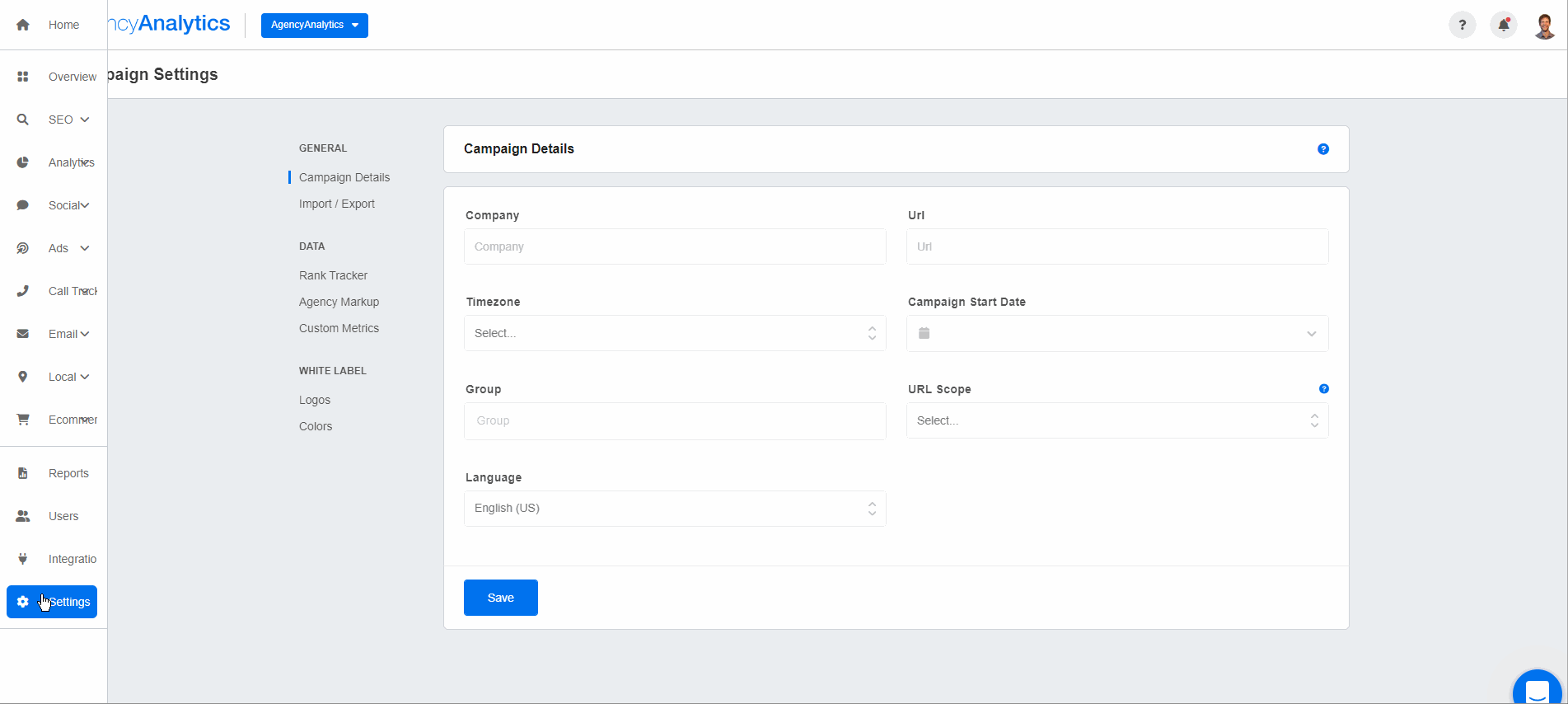
Facebook Ads
In contrast to paid Google search, Facebook Ads offers paid social media advertising. With consistent Facebook algorithm changes, it has become increasingly difficult for agencies to reach their clients' potential customers organically.
This is where paid social media ads come into play. With Facebook Ads, you pay to get in front of new customers on social networks instead of reaching them organically.
As you know, Facebook isn’t limited to just your Facebook Feed. A few of the Facebook ad placements to advertise on include:
Facebook Feed
Instagram Feed
Facebook Marketplace
Facebook Video Feeds
Facebook Right Column
Audience Network
Facebook Messenger
Oculus mobile app Feed
Here is an example of a paid ad on Facebook’s Feed:

Read More: How Much To Charge for Social Media Management Services
5 Key Differences Between Facebook Ads vs Google Ads
Now that we've covered the basics, let's jump into the main differences between Facebook Ads and Google Ads.
1. Google Ads vs. Facebook Ads Audience Size
Both Google and Facebook have enormous reach—Google handles more than 22 billion searches daily, while Facebook has an estimated 3.065 billion daily active users.
On Facebook, businesses spent $135 billion on ads in 2023, up from $116 billion in 2022.
That said, advertising on mobile certainly isn't an opportunity you should shy away from!
In all likelihood, your client’s target audience is on both of these platforms, so you can't determine the right fit for their business on audience size alone.
Instead, ask yourself these questions:
Is their target audience active on these networks?
Is their product search-oriented or social?
Even with Google's 22 billion searches a day, it won't help them if no one is actually searching for their specific product.
Are they releasing a new, innovative product? Have people heard of what your client’s business offers? If people aren't likely to search for a client's product or service, then a Facebook ad is often a better option to get the word out.
Agency Tip: Regardless of which type of advertising you choose, keep track of any significant changes to audience growth. This may give you a better idea of how your ad campaigns are improving over time.
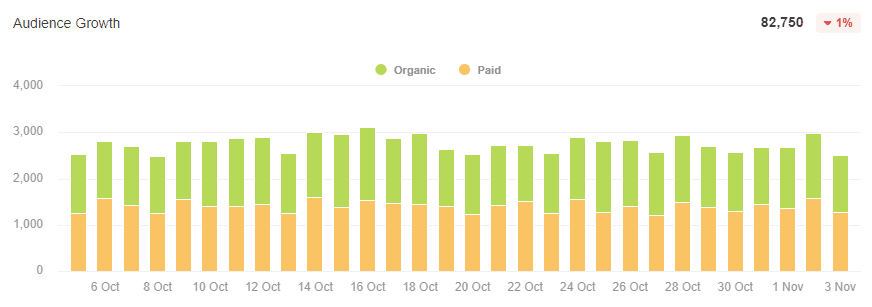
2. Google Ads vs. Facebook Ads Cost & ROI
Cost is another critical consideration. Based on recent Google Ads benchmarks, the average Cost Per Click is $2.29.
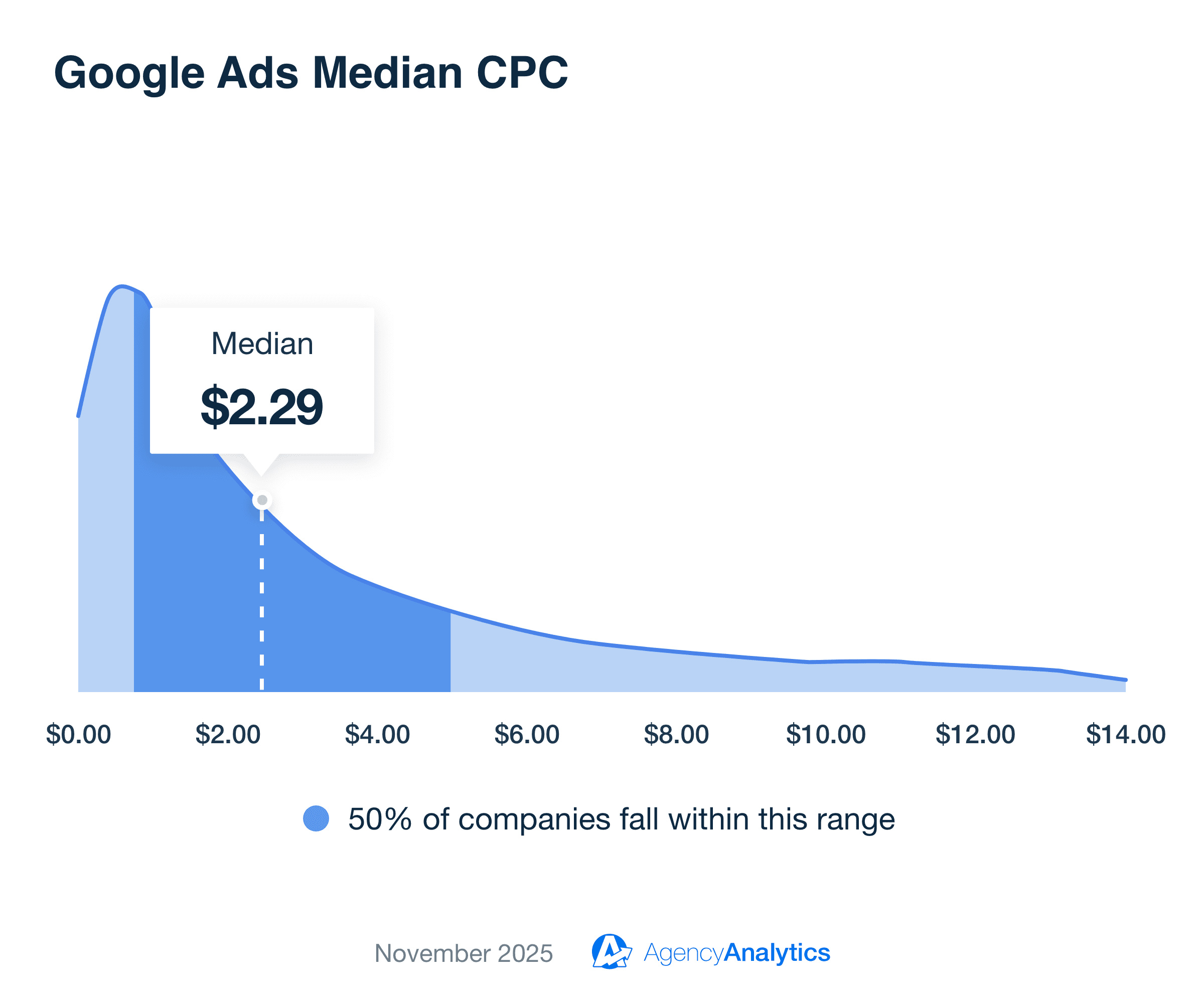
Curious to see how your client’s ads compare to their competitors? Check out the AgencyAnalytics Insights feature! Compare benchmarks by industry, spot anomalies and trends, and create forecasts–it’s free for 14 days!
But this varies wildly by industry.
Average Google Ads Cost Per Click by Industry, Updated for November 2025
Industry | Median CPC |
Advertising & Marketing | $2.54 |
Apparel & Fashion | $0.72 |
Attorneys & Legal Services | $5.73 |
Automotive Parts & Services | $3.11 |
Business Services | $2.60 |
Dental Services | $5.56 |
Education | $1.98 |
Health & Fitness | $2.38 |
Home Improvement | $2.37 |
Real Estate | $1.74 |
Restaurants | $0.64 |
Storage & Moving | $4.99 |
Travel | $0.81 |
Weddings & Events | $1.34 |
In paid search, apparel or fashion businesses can expect to pay about $0.72 per click, while firms in the legal industry spend an average of $5.73 per click.
Average Google Ads Cost Per Click by Country, Updated for November 2025
Country | Median CPC |
United Sates | $2.84 |
Canada | $2.02 |
United Kingdom | $1.07 |
Australia | $1.85 |
Germany | $0.93 |
France | $0.54 |
Spain | $0.47 |
The median CPC for Google ads is 3 times higher in the U.S. than it is in Germany.
Google display ads, part of the Google Display Network, reach over 90% of internet users and offer extensive targeting capabilities. These allow businesses to connect with potential customers at the right moment and set up remarketing at a low cost.
Facebook Ads are cheaper per click than Google Ads, with a median CPC of $0.49.
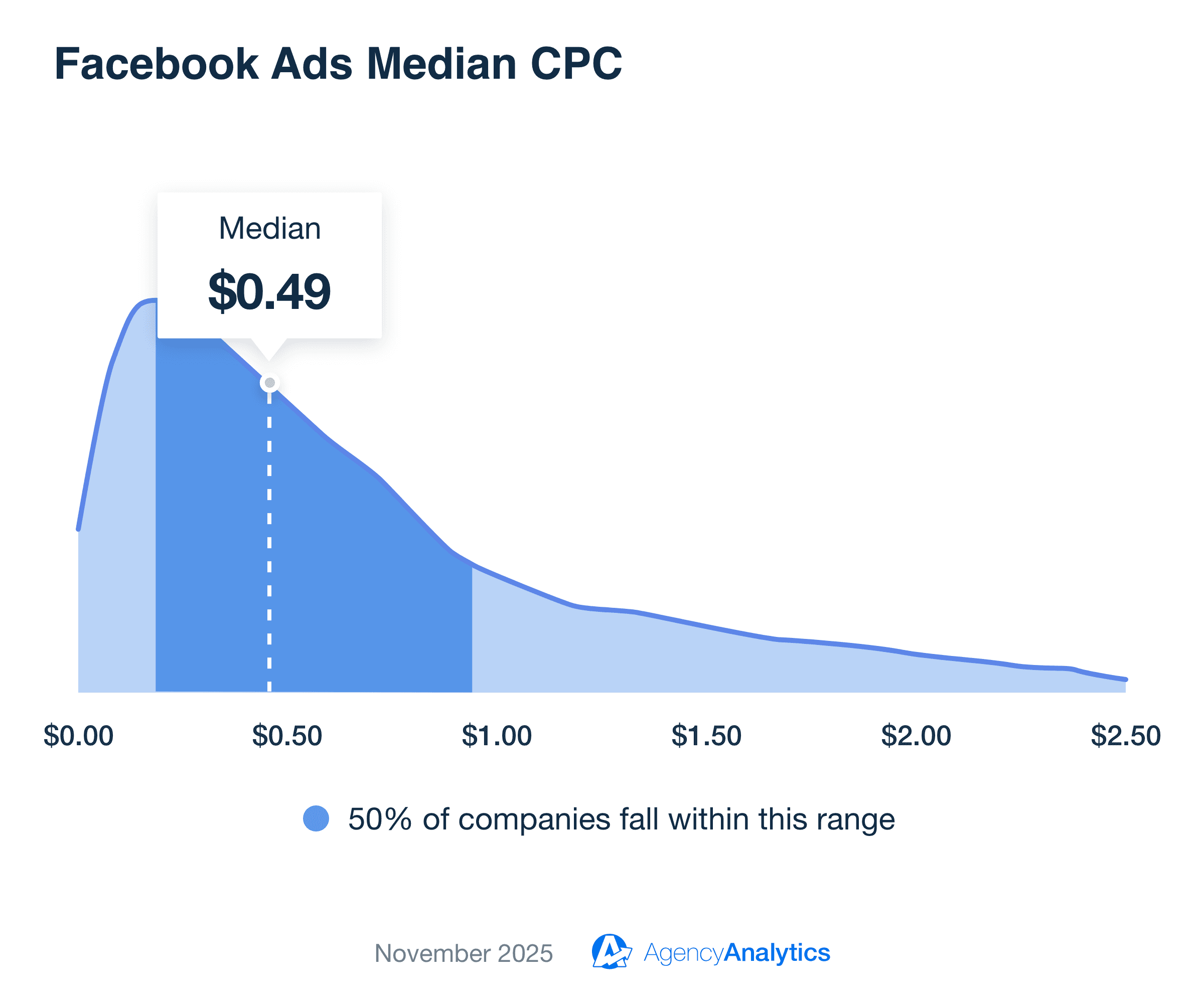
But, similar to Google Ads, these median values fluctuate based on industry.
Average Facebook Ads Cost Per Click by Industry, Updated for November 2025
Industry | Median CPC |
Advertising & Marketing | $0.54 |
Apparel & Fashion | $0.46 |
Arts & Entertainment | $0.27 |
Attorneys & Legal Services | $0.75 |
Automotive Parts & Services | $0.47 |
Business Services | $0.91 |
Dental Services | $0.70 |
Education | $0.47 |
Health & Fitness | $0.95 |
Home Improvement | $0.69 |
Although the shift is not quite as dramatic as you see with Google Ads, the cost per click within the Health & Fitness industry is double that cost in Education.
Average Facebook Ads Cost Per Click by Country, Updated for November 2025
Country | Median CPC |
United Sates | $0.52 |
Canada | $0.45 |
United Kingdom | $0.29 |
Australia | $0.57 |
Germany | $0.42 |
France | $0.17 |
Spain | $0.24 |
The U.S. and Australia have among the highest median CPCs on Facebook, with France and Spain coming in near the bottom of the list.
But keep in mind that the average CPC varies not only by industry and country, but by placement as well. For example, a study by Adespresso showed that Instagram ads were about double the cost of Facebook ad placements!
A Side by Side Comparison of Facebook Ads Cost vs. Google Ads Cost
KPI | Google Ads | Facebook Ads |
Median CPC | $2.29 | $0.49 |
Median Spend | $1367.75 | $1025.67 |
CTR | 4.26% | 1.81% |
3. Facebook Ads vs. Google Ads Buyer Intent
When it comes to buyer intent, Google Ads almost always beat out Facebook Ads. Consider what kind of business your clients have—do people tend to search for their products or services when they are ready to make a purchase?
For example, if a person's air conditioner breaks, they immediately start searching for an HVAC repair business. Search ads would place that business in front of potential customers at the exact time that they need their service.
On the other hand, that person isn't going to remember that HVAC business they saw on Facebook three months ago. In this scenario, Google Ads would be a clear winner.
Facebook Ads are also generally less effective at getting leads to convert quickly. People typically go to Facebook to relax and socialize, not to shop. However, this platform is still incredibly useful for building your client’s audience. Creating a sense of community on social media makes people likelier to buy when they need a service or product.
That said, if your client’s campaign objective is to build brand awareness rather than immediate conversions, Facebook may be the best choice.
Facebook ads are typically about pushing products/services in front of potential customers who aren't actively looking for a solution. Google, on the other hand, is most often used to get ads in front of users who are actively searching for your products/services. Due to this, Facebook is often better for new products/services that don't have existing demand, while Google is more useful for convincing existing demand to purchase from your business rather than the competition.
Josh Sexton, Digital Performance Director, Sprocket Digital
Use the AgencyAnalytics Rank Tracker Tool to monitor user searches and optimize your clients’ marketing strategies—try it free for 14 days.
4. Google Ads vs. Facebook Ads Targeting Options
Both Google Ads and Facebook Ads give you options for targeting (and retargeting) specific audiences. Both platforms allow you to target by age, gender, location, and income level, among other things.
However, Facebook is the hands-down winner for advanced targeting options.
In addition to the targeting options mentioned above, Facebook allows you to create audiences based on a large list of interests and behaviors, thanks to the wealth of information it collects from its 3.07 billion monthly active users.
Want to target parents? Check. Want to target parents with children ages 5-7? Check. Want to target vegetarian parents with children ages 5-7 and a household income between $75K-99K? Check.
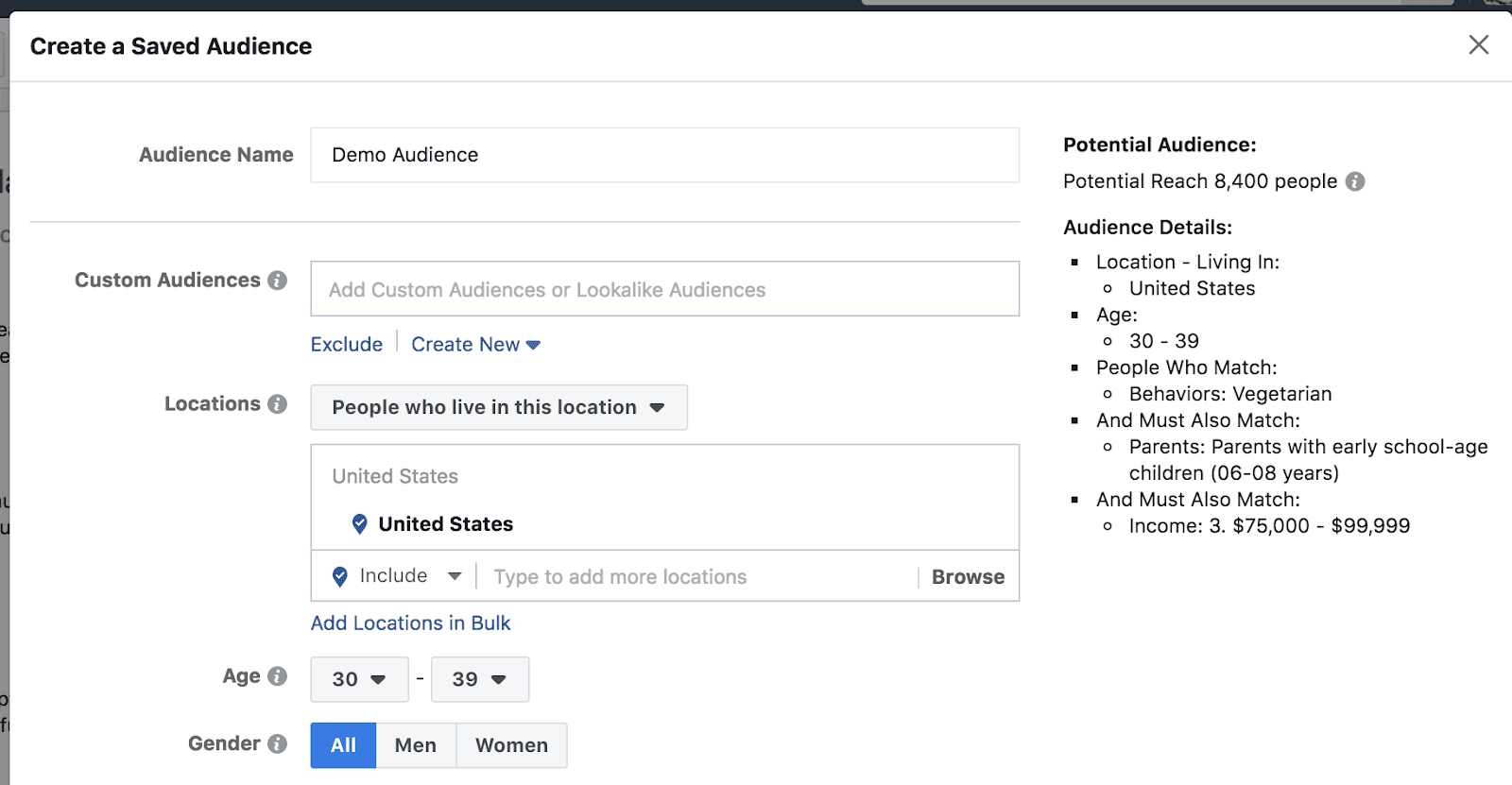
You get the idea. Facebook allows you to be very specific with your audience. If your client’s target audience is very niche, then Facebook Ads will be an excellent option for their business.
Facebook also offers a valuable tool called lookalike audiences, which lets you advertise to people similar to your client’s existing audience. Facebook uses its existing data to match target customers to similar users, which can be a very powerful option for advertisers.
5. Facebook Ads vs. Google Ads Ad Formats
What about ad formats? This goes back to the question: what’s the objective of your client’s campaign?
You’ve certainly got more creativity on Facebook, making it a better platform for building brand awareness and customer loyalty.
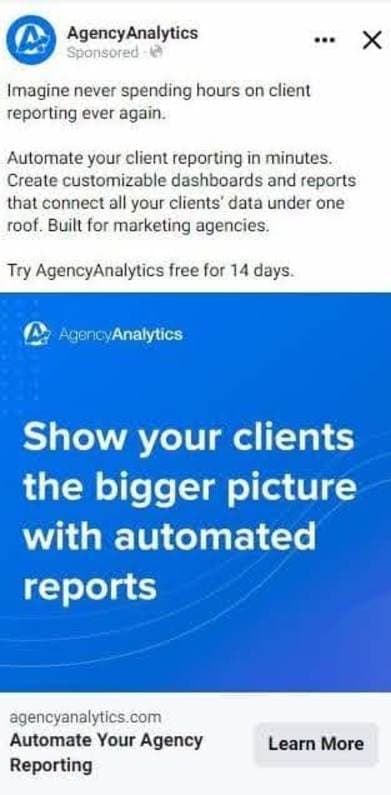
If you use Google Ads, you have a small block of text to catch potential customers’ eyes on the SERPs. You can use ad extensions for additional text and information, but your format will be limited to text in search ads.
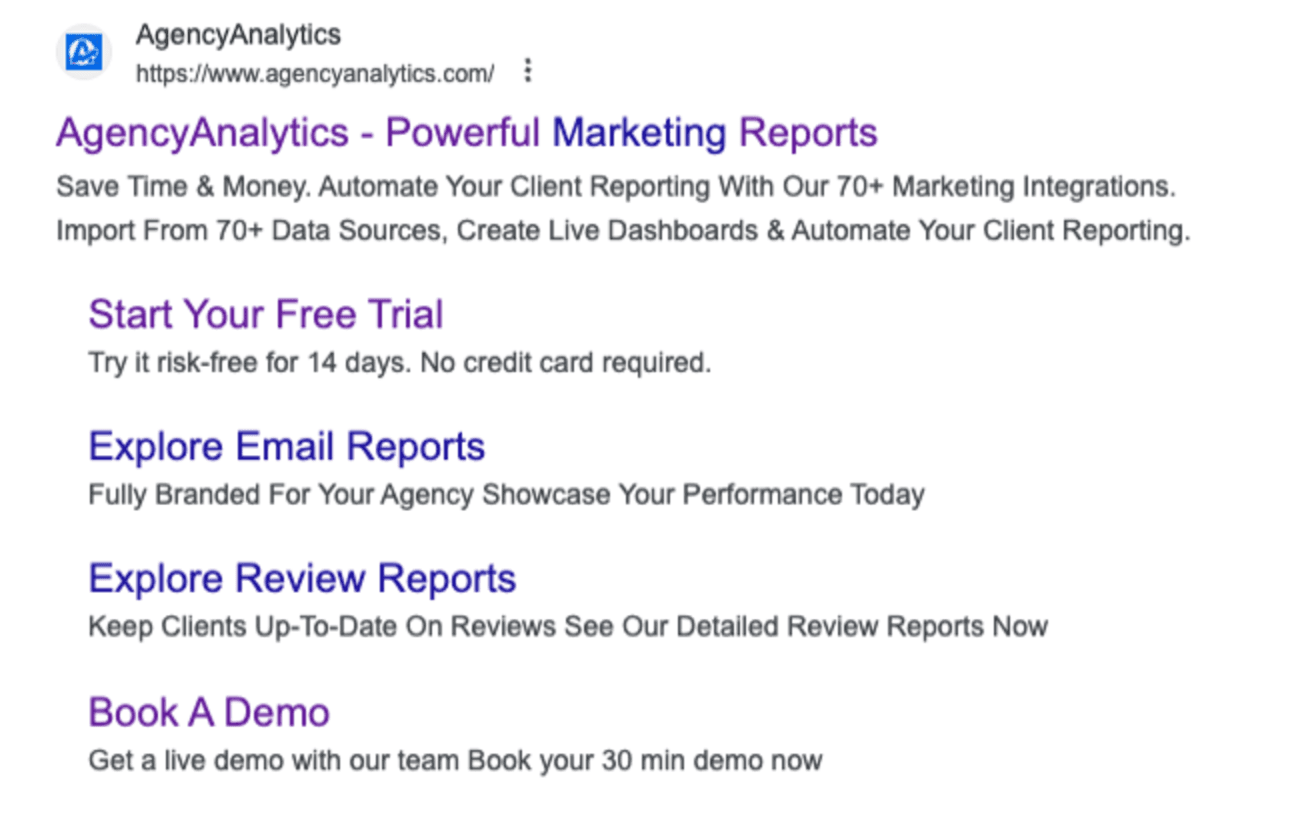
On Facebook, however, image-based ads add a visual impact to your client’s message. Facebook continues to roll out various ad formats to avoid “ad fatigue.”
Use a mix of videos, images, carousel ads, and more to capture your audience’s attention. If your client has an ecommerce business, Facebook's visual component should be a big consideration when choosing the platform right for them. Google Ads also offers shopping ads, which display specific products in Google Search results and can be used for competitor targeting to promote products.
Which is Better?
So, which platform should you choose—Google Ads or Facebook Ads?
1. What Are The Campaign’s Goals?
First, consider your specific campaign goals. Is your goal to make more sales as quickly as possible? If so, Google Ads may be the better choice.
If you’re looking to expand brand recognition or reach a wider audience, Facebook Ads may be the better choice.

2. What’s the Industry?
Next, consider the industry. Both B2B and B2C businesses use Google Ads successfully. Facebook Ads often work better for B2C businesses, especially those selling less expensive items, since people are more likely to impulsively buy these products after being exposed to them a few times. However, even for B2B, there are going to be opportunities on Facebook Ads—especially for remarketing and lookalike audiences.
Your audience also affects which platform you should choose. Do people search for the business or service with the intent to buy? If so, Google will bring the best results. But if you’re trying to build an audience for a new product, Facebook will typically work better.
Consider which stage of the buyer's journey you're trying to target with PPC ads—Google Ads is great for bottom-of-the-funnel prospects, while Facebook is usually best for attracting new top-of-the-funnel prospects.
3. What’s The Budget?
Finally, consider the advertising budget and your level of technical skill. Do you have the money to invest in Google Ads?
Do you have the ability to create (or outsource) strong image—or video-based ads for Facebook? Evaluating this can help you sketch out a realistic and actionable strategy.
Based on recent monthly spend benchmarks for different ad platforms based on AgencyAnalytics data, the median monthly spend for Google Ads campaigns is $1,069.36, while the median monthly spend for Facebook Ads across industries is $763.88.
This means that businesses are typically willing to invest 40% more in Google Ads than they are in Facebook Ads, which is a handy benchmark for establishing marketing budgets.
Facebook Ads vs Google Ads: When To Use Each
When To Use Facebook Ads
Facebook Ads can target a particular audience that has shown an affinity for your client’s products or services.
They help your clients increase the visibility of their Facebook content and boost traffic to their websites. Facebook Ads can be set up to increase site traffic, impressions, and even average click-through rate (CTR).

Monitor Facebook Ads by using AgencyAnalytics’ easy-to-use visual dashboard. Sign up for your free 14-day trial to create client-ready reports in minutes.
Facebook ad campaigns also give agencies a lot of flexibility, like how much you want to spend from your client’s budget, including:
The overall amount spent
Their daily budget
Their cost per result
Plus, you can choose when you want Facebook to bill you, such as by the number of views or clicks.
After all, Facebook is the #2 digital ad seller in the US, after Google. Therefore, if you can use them to your client's advantage, definitely make that recommendation.
Facebook ads only perform well if the creative is great—which is another important consideration. Does the client have existing creative that will perform well? Can they afford to invest in a few variations of quality creative that can be used to drive consistent performance of paid ads?
Josh Sexton, Digital Performance Director, Sprocket Digital
When To Use Google Ads
Google Search Ads get in front of people actively searching for a solution to a current need.
They are an effective way to drive qualified traffic to your client’s business who are already searching for their products or services–specifically by keyword.
In a nutshell, if high intent exists, Google Ads would be my first port of call and should be a priority. If the brand in question is in need of brand awareness or is especially visually driven, Facebook Ads tends to work better as a starting point.
Sam Yielder, Senior Paid Media Manager, Squidgy
When users type in a keyword in their search query, the results appear on the SERP, including a paid ad that targeted that keyword. Setting up an ad campaign in Google Ads involves selecting keywords, creating ad copy, and defining targeting criteria to reach the desired audience.
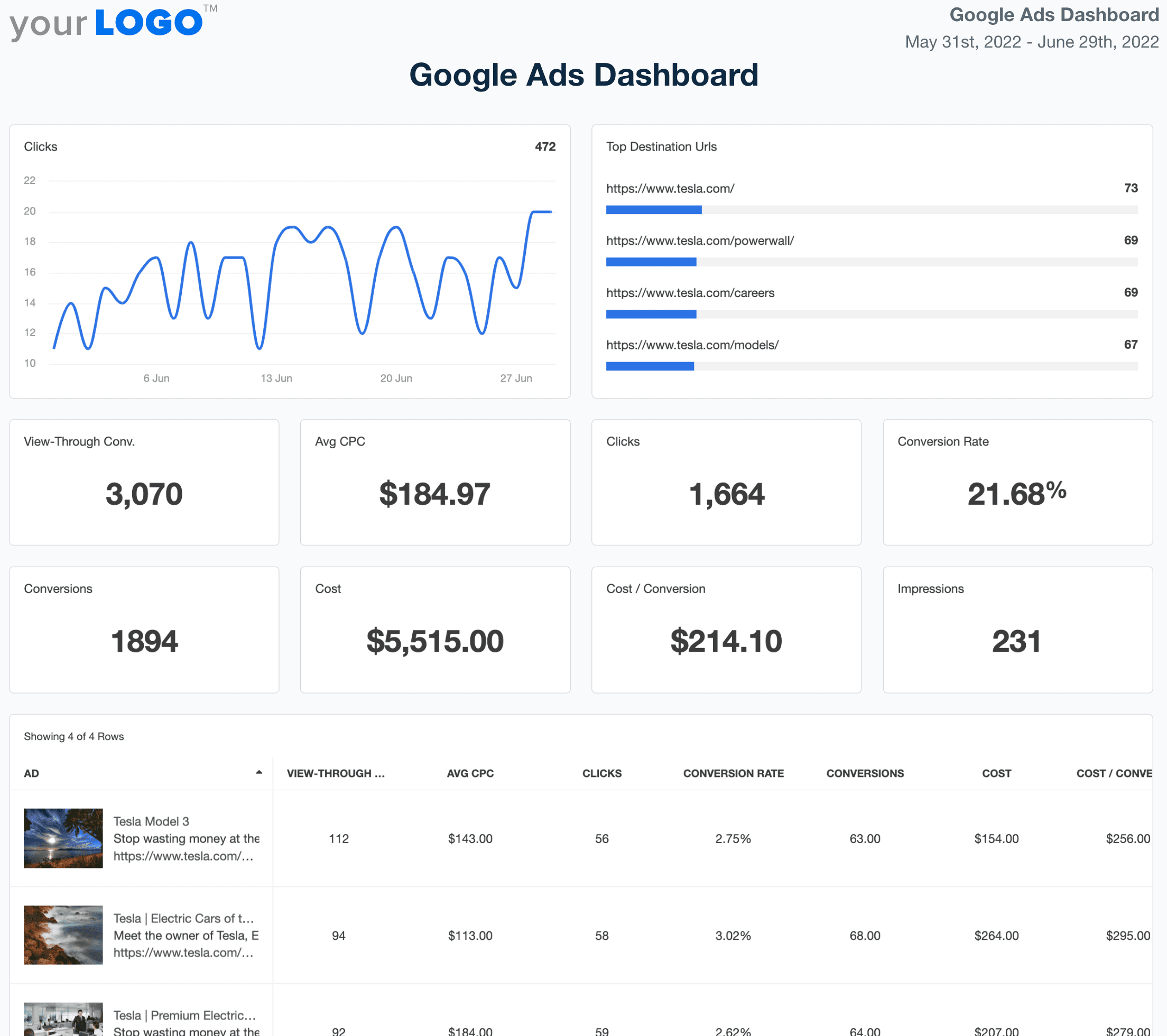
Put all your clients’ Google Ads metrics under one roof. Try the Google Ads dashboard, free for 14 days!
If your client has a list of relevant keywords, and they know their audience could be searching for them, Google Ads is the way to go.
The Google Display Network expands your client’s reach by presenting image and text ads on sites that run Google advertising. These placements can be useful for both awareness (based on audience and interest-based targeting) and remarketing to previous website visitors.
How To Use Google Ads and Facebook Ads Together
There are many ways that Google Ads and Facebook Ads work hand-in-hand to drive awareness, engagement, and conversion. After all, it usually takes multiple touchpoints between when a customer is first introduced to your client’s brand and when they purchase.
We believe using both is best, because you reach both an active and passive audience. Active searchers are hotter prospects, so we recommend using 75% of the budget for active searchers and 25% for the passive audience, depending on the client. So if we are dominating in the organic rankings, we may spend much less on paid ads for active and more on the passive audience to reach new eyeballs.
Barry Martin, President & Creative Director, The Idea Center
For example, people who see your client’s Facebook Ads may have some interest in the offer being presented, but they want to know more about your client’s business and what products they sell or services they offer.
This is an excellent opportunity to use their brand name as a keyword in their search campaigns and then match the messaging to their current Facebook Ads. This strategy leads their cold Facebook audience to find exactly what they were looking for on Google. It not only strengthens the overall marketing message but also shows reliability.
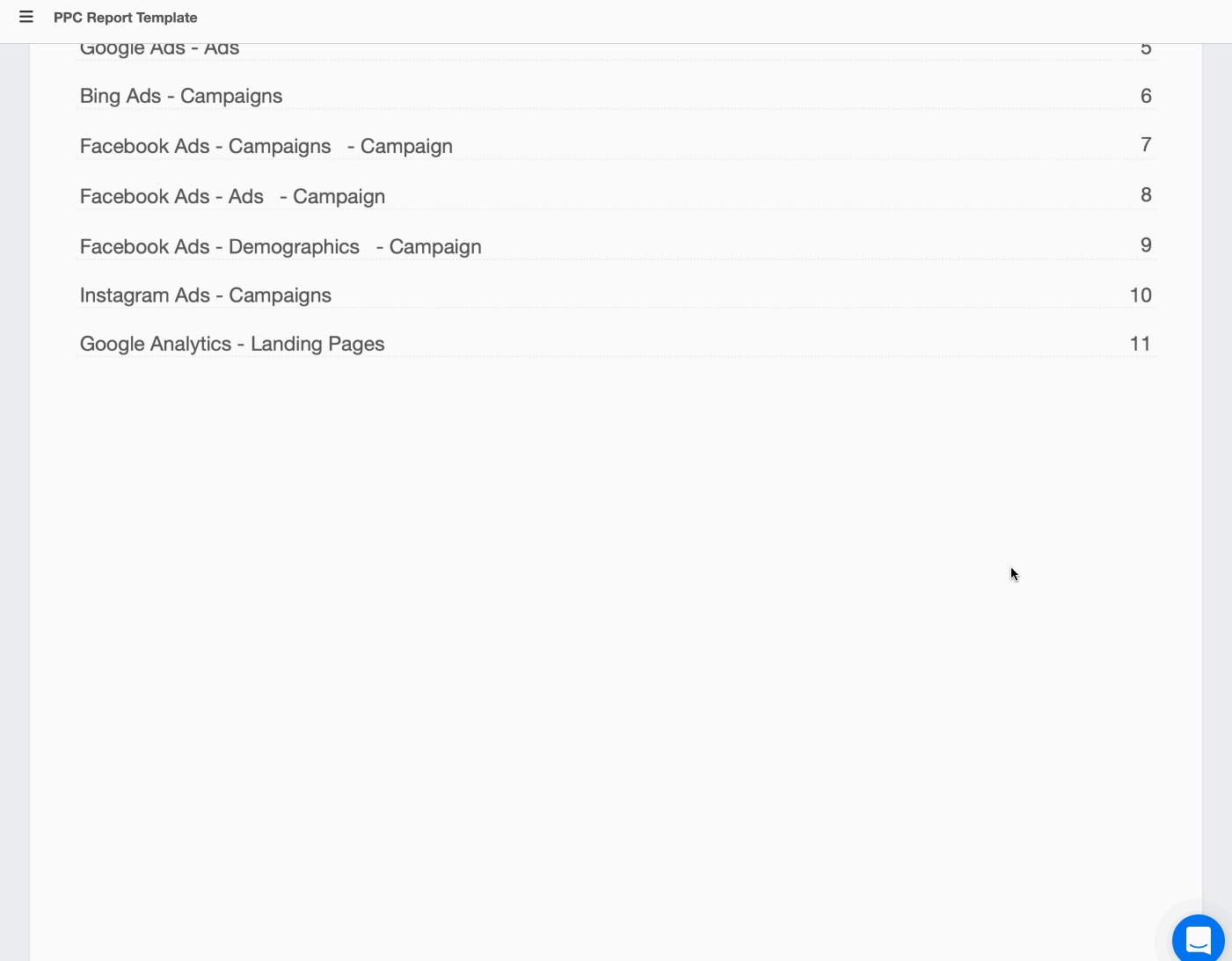
Keep tabs on all your advertising campaigns simultaneously with this exact PPC report template. Use it during your free 14-day trial and pump out all your clients’ PPC reports in minutes.
Here are a few more examples of how they can work together seamlessly.
Touchpoint 1 | Touchpoint 2 |
|---|---|
Facebook Ad to a Cold Audience | Branded Search ad on Google |
Non-Branded PPC Ad on Google Ads | Remarketing Ad on Facebook |
Shopping Ad on Google | Testimonial Ad on Facebook |
Facebook Video Add to Launch a New Product | Google PPC Ad Around Product Keywords |
There are many more examples, but those should help illustrate how well these two massive ad platforms can dovetail with each other.
What Is the Benefit of Using Both?
A great strategy to try for your clients is using the powerful combination of Facebook ads and Google ads. Facebook Ads build brand awareness, and Google Ads retarget for conversion–and vice versa.
Consider this scenario:
A Facebook user sees an ad that features your client’s amazing, super-absorbent bathroom towels. They clicked on the ad but weren’t ready to purchase yet. However, the next time they reached for their old, ratty bathroom towel, they decided it was time to upgrade.
So they head over to Google and type in ‘bathroom towels,’ and they’re hit with a retargeted Google ad featuring your client’s brand again.
The reverse scenario also works where a user might click on a Google search ad and add something to their cart, and then a Facebook ad reminds them about what they previously showed interest in (just in case they got distracted).
The benefits of using both Google Ads and Facebook Ads cannot be overlooked. If you haven’t already, try implementing this strategy for your clients and see the results for yourself.
Agency Tip: Many advertisers now extend campaigns across LinkedIn Ads and TikTok Ads to complement Google’s high-intent searches with Meta’s audience-driven reach. The strongest performance strategies combine the strengths of search intent and social discovery, ensuring your clients capture both active and passive demand.
Tracking PPC Results
The challenge on the agency side of running both is that you now have two large and complex platforms to report on. How do you easily consolidate the data to tell a comprehensive story about your campaign performance?
No matter which PPC reporting tool you choose, tracking your client’s ROI is critical. One way to automatically track your results is with the AgencyAnayltics PPC dashboard template, which includes the following sections:
Cost
Conversions
Conversion rate
Impressions
Clicks
CTR (click-through-rate)
Create your own custom dashboard as you see fit!
Measuring the success of PPC campaigns can be difficult, especially when the paid search analytics data is spread across several advertising platforms. Consolidate and automatically pull each Google Ads metric, Facebook Ads metric, and other PPC metrics into a single view with an intuitive dashboard that your clients will easily understand.
Plus, if you're managing PPC ads for clients, give them 24/7 access so they can track the effectiveness of their ad campaigns in real-time.
For more granular insights, flip over to the Facebook Ads Reporting Tool, Google Ads Reporting Tool, or any of the 20+ other PPC integrations to see detailed data on specific platforms.
Plus, with pre-built report templates, quickly and easily create monthly summaries using the Facebook Ads report template, Google Ads report template, PPC report template, or the comprehensive digital marketing report template. What could be simpler?
The Takeaway on Google Ads vs. Facebook Ads
Google Ads and Facebook Ads are two excellent PPC advertising options; in many cases, the two platforms work best if used together.
Ultimately, and if the budget allows, using both Google Ads and Facebook Ads together to create a full-funnel strategy would be the preference in most cases.
Sam Yielder, Senior Paid Media Manager, Squidgy
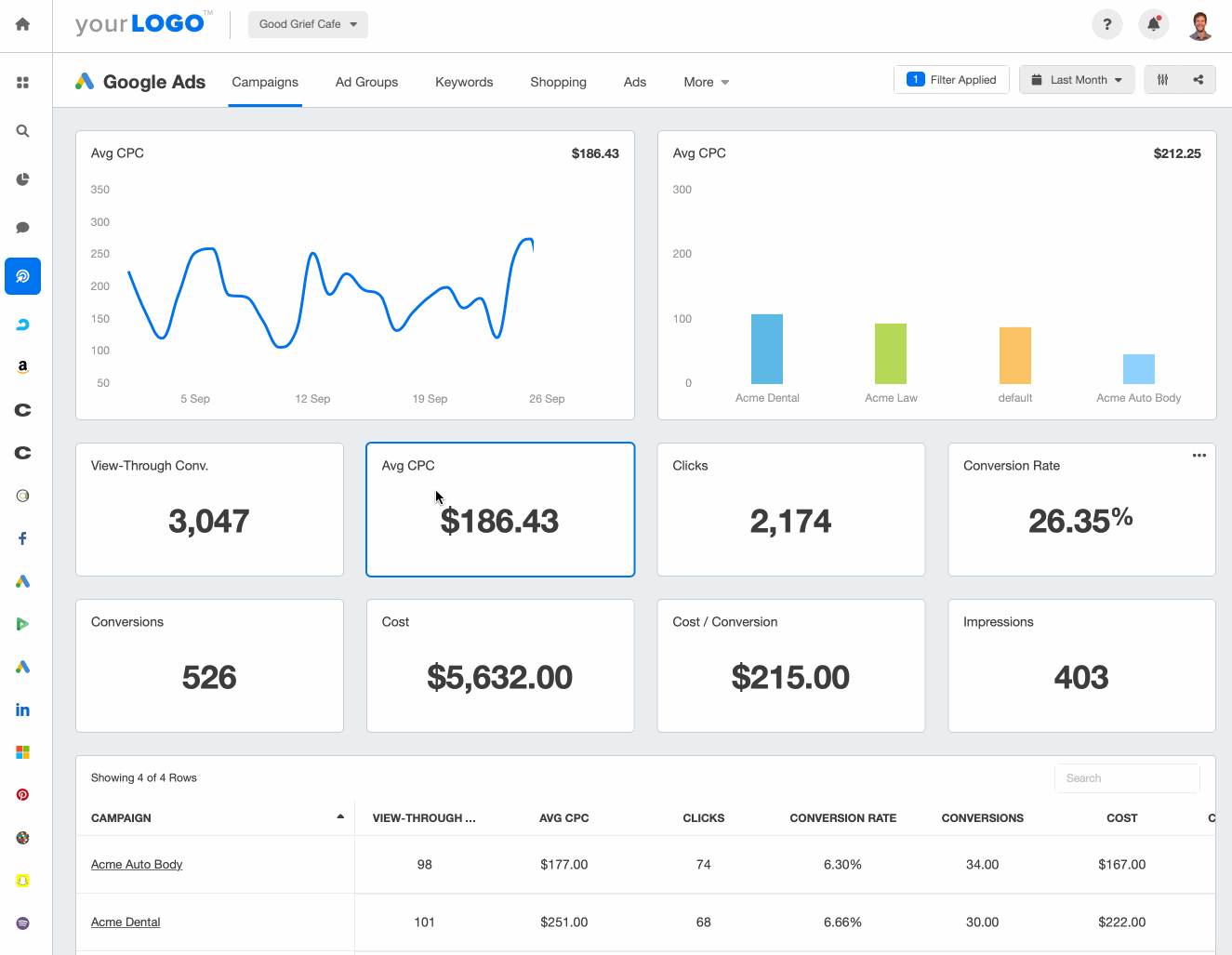
If your agency advertises on both, make sure you're accurately tracking campaign results so you know which channel your client’s top performer is.

Easily track all your clients’ PPC metrics under one roof and create clear client reports that showcase their ROI–in minutes! Start your free 14-day trial and put your PPC reporting on autopilot with AgencyAnalytics.
Mastering Google vs. Facebook Advertising: What Agencies Need to Know
Discover how agencies choose between search intent and social engagement—plus tips to balance both for real ROI.
The choice depends on your audience’s search intent. Google Ads reach people actively searching for a product—ideal for high intent searches like “emergency plumber” or “buy running shoes online.”
Facebook Ads, by contrast, build awareness among a highly targeted audience based on personal interests and demographics.
For agencies, combining search network campaigns with social ads drives conversions at both the discovery and decision stages. In short, Google captures those ready to buy, while Facebook nurtures potential customers who aren’t searching yet but match your target market.
On average, Google Ads cost more per click due to high-intent searches and intense direct competition among advertisers. However, this higher cost often delivers faster ROI thanks to conversion-ready users. Facebook Ads typically have a lower CPC, making them ideal for small businesses focused on brand awareness or engagement.
It’s always best to use performance outcomes to guide spend, but the numbers offer a practical baseline. The median CPC is higher on Google Ads ($2.29) than Facebook Ads ($0.49), yet Google’s CTR is stronger (4.26% vs. 1.81%), reflecting deeper purchase intent. With median monthly spend at $1,368 for Google Ads and $1,026 for Facebook Ads, agencies typically allocate about 57% of the ad budget to Google and 43% to Facebook.
For sales-led goals and bottom-of-funnel demand, skew 60–75% toward Google Ads. For brand awareness or creative testing at the top of the funnel, tilt 60–70% toward Facebook Ads. Always adjust by industry benchmarks, LTV, and blended CAC to ensure efficient, goal-aligned spending across both PPC platforms.
Google Ads is intent-driven: users are already searching for specific products or solutions on Google properties, meaning ads appear where and when they matter most. Facebook advertising, on the other hand, focuses on visual storytelling and community engagement across Meta platforms.
Google delivers text-based ads that convert active demand, while Facebook delivers visual ads that build interest. When combined, they form a balanced funnel—Google handles pay per click advertising for high intent searches, while Facebook inspires new demand through social connections and online behaviors.
Use Google Ads when your clients target audiences ready to act—such as those searching specific keywords or comparing options on the search engine results pages. It’s the go-to platform for capturing high intent searches and converting leads fast.
Choose Facebook Ads when expanding reach, building brand awareness, or re-engaging existing customers who share the same interests. The ideal strategy often includes both—Google for conversions, Facebook for visibility—united by consistent messaging and shared marketing objectives.
Start by clarifying business goals and desired outcomes. If the focus is on immediate leads, Google Ads excels at connecting brands with users searching certain keywords or products. For storytelling and community-building, Facebook ads vs Google ads offers flexibility with video, carousel, and interactive visual ads.
Agencies that analyze target market data—such as demographics, personal interests, and online behaviors—craft smarter, data-informed campaign mixes. Each platform complements the other, and together they support a sustainable PPC growth strategy across channels.
Absolutely. Using both creates a full-funnel approach where Facebook advertising vs Google advertising isn’t an either/or decision—it’s about sequencing. Facebook Ads attract awareness through social ads and video, while Google Ads retargets those users when they search Google later. This approach strengthens recall, builds trust, and multiplies conversions.

Written by
Richelle Peace is a writer with a degree in Journalism who focuses on web content, blog posts, and social media. She enjoys learning about different topics and sharing that knowledge with others. When she isn’t writing, Richelle spends time teaching yoga, where she combines mindfulness, movement, and her passion for wellness.
Read more posts by Richelle PeaceSee how 7,000+ marketing agencies help clients win
Free 14-day trial. No credit card required.



